6 September 2024 –
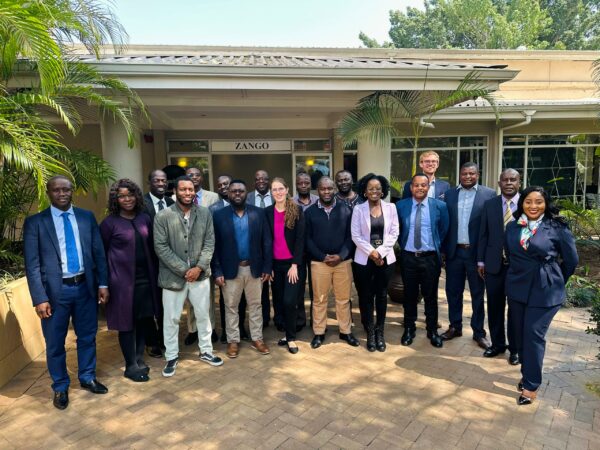
The UNCAC Coalition recently piloted its new in-country advocacy program, with Zambia selected as the destination to kickstart these efforts.
Zambia’s UNCAC review country visit took place between 13 and 15 August 2024, presenting the perfect opportunity to travel to the country to advocate for transparency and civil society participation in the UNCAC review process.
We joined forces with Transparency International Zambia – our local partner in the country, who we are currently supporting in conducting follow-up activities to their parallel report to organize a series of impactful activities.
There were three main activities organized as part of the trip:
- Roundtable on whistleblower protection with national stakeholders
- Training for civil society organizations on the UNCAC review process and on Access to Information (ATI)
- Engagement meetings with national and international stakeholders
This blog post describes the activities conducted and the impact achieved.
Multi-stakeholder Roundtable on Whistleblower Protection
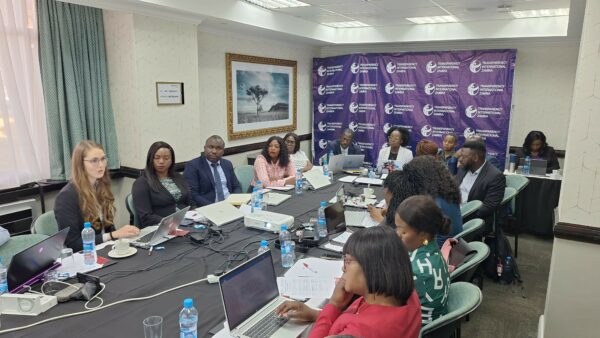
This roundtable meeting of Zambian government institutions, civil society organizations, the media, and other relevant stakeholders was conducted on 7 August 2024. The objective was to analyze Zambia’s whistleblower protection framework and discuss concrete ways of strengthening it.
Transparency International Zambia shared the results of its forthcoming gap analysis of whistleblower protection frameworks in the country, which highlights a number of issues including: 1) the fact that the President appoints the Head of the Anti-Corruption Commission, undermining its independence and ability to protect whistleblowers; and 2) the fact that Section 13 of the current Whistleblower Protection Act criminalizes “frivolous, malicious or vexatious” disclosures, deterring potential whistleblowers from coming forward.
The UNCAC Coalition highlighted international standards, such as CoSP resolution 10/8 on the protection of reporting persons, and regional best practices for the protection of whistleblowers.
Participants raised the following key points:
- Institutional collaboration: Participants raised the need for stronger co-operation between Zambian government institutions responsible for whistleblower protection, including the Zambian Police, Anti-Corruption Commission and Office of the Public Protector.
- Legal frameworks: Participants raised the need to address gaps in enforcement in Zambia’s whistleblower protection frameworks.
- The Zambia Police raised the need to adopt a human-rights based approach to whistleblower protection.
- The Drug Enforcement Commission shared the need to include compensation for whistleblowers in relevant legislation.
- Reporting mechanisms: Participants raised the fact that whistleblowers prefer to use media or civil society channels to report wrongdoing. The Anti-Corruption Commission highlighted that while it recognizes the need for stronger reporting mechanisms, there have been recent advances, such as the establishment of an online reporting platform.
- Awareness raising: Civil society organizations raised the need for greater awareness raising and information distribution regarding the rights of whistleblowers and relevant protections.
Training for civil society organizations on the UNCAC review process and Access to Information (ATI)
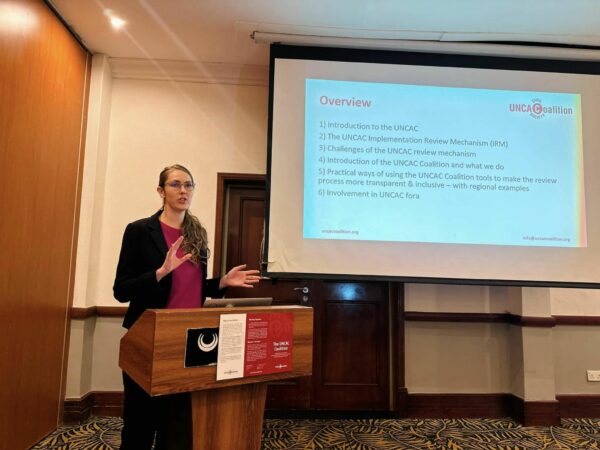
This activity was held on 8 August 2024, just days before the start of Zambia’s UNCAC review country visit, which took place between 13 and 15 August 2024.
The objective was to train civil society organizations on ways to advocate for a stronger and more inclusive UNCAC review process in order to empower them to participate actively in the country review visit and beyond.
The UNCAC Coalition shared its tools to promote transparency and participation in the review process, including its UNCAC review status tracker, access to information campaign, civil society parallel reports, guide to transparency and participation, and UNCAC transparency pledge.
Transparency International Zambia shared the key findings from its civil society parallel report on UNCAC implementation in the country.
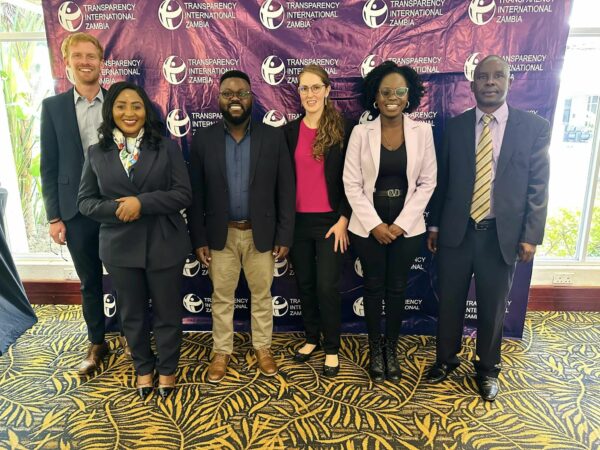
Key outcomes of the training include the following:
- More than 15 civil society organizations participated in the training.
- The Zambian UNCAC focal point, who was invited to the training, confirmed that civil society would be able to meet with the peer reviewers without government present during the country visit.
- Organizations were able to coordinate strategy ahead of the UNCAC country review visit. This included publishing a joint statement ahead of the visit calling for broader civil society participation in the process. This statement was successful in guaranteeing civil society participation in Zambia’s UNCAC country review visit.
- Several civil society organizations participated in the review visit, in representation of many others, sharing insights and messages coordinated during the training.
Access to information
Part of the training focussed on the issue of Access to Information (ATI) and how to leverage Zambia’s new ATI Act.
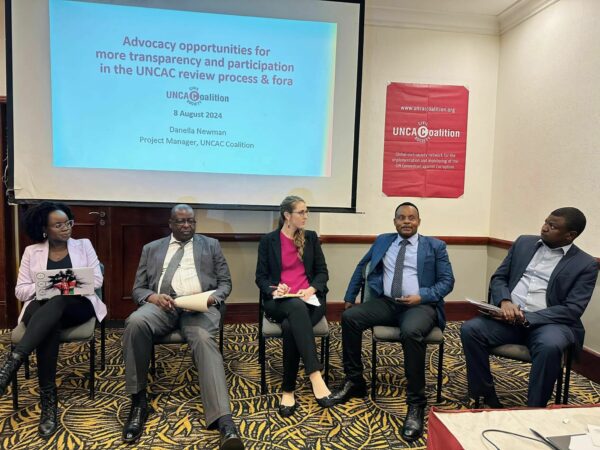
The UNCAC Coalition shared information regarding international standards and regional best practices, and the Jesuit Centre for Theological Reflection (JCTR) shared the results of its analysis of the new access to information law. A panel discussion with representatives from the media, civil society, and the Human Rights Commission, the implementation body of the ATI Act, generated great interest amongst participants.
The ATI section of the training resulted in the following insights:
- Gaps in Zambia’s current ATI legislation must be closed to make it robust and enforceable.
- Oversight bodies must become operational.
- Media and civil society organizations should leverage the new ATI legislation for their work.
- Multi-stakeholder collaboration is essential for the law’s effective implementation.
- There is a need for awareness raising and information distribution regarding the law, both within government and among the general public.
Meetings with stakeholders
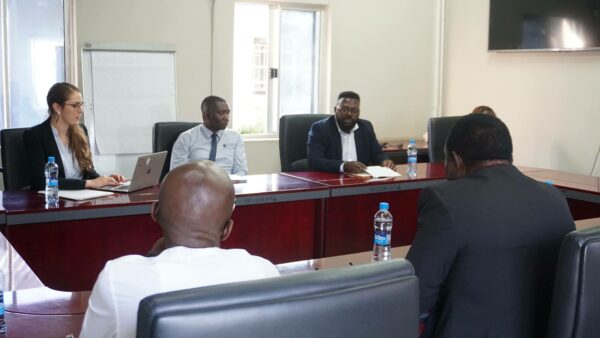
The UNCAC Coalition held meetings with national and international stakeholders during the trip in order to position key issues and raise the importance of civil society participation.
At the national level, we met with: the Office of the Public Protector, the Anti-Corruption Commission, the Human Rights Commission, and two national NGOs – the Jesuit Centre for Theological Reflection (JCTR) and Chapter One Foundation.
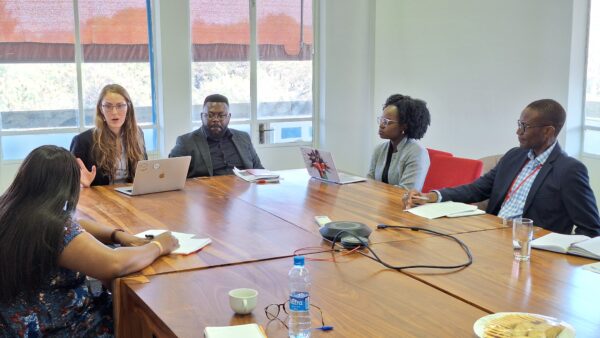
At the international level, we met with: GIZ – the German international development agency – the US and Swedish embassies, the UK High Commission in Zambia, and the EU delegation.
Key outcomes of these meetings include:
- Increased awareness of areas in Zambia’s anti-corruption efforts that need to be strengthened.
- Support from stakeholders to push reforms forward.
- Increased collaboration between stakeholders and TI Zambia.
In-country advocacy missions – an effective tool for the future
The mission was a highly effective tool to drive progress on key anti-corruption issues facing Zambia today.
Together with our partner – Transparency International Zambia – we hope to have inspired debate and reflection on the value of international standards and civil society’s continued participation in the fight against corruption.
Through TI Zambia and other civil society organization’s continued efforts to strengthen whistleblower protection and access to information in Zambia, we will continue supporting advances in key areas of UNCAC implementation.
We look forward to replicating this impactful experience elsewhere!



